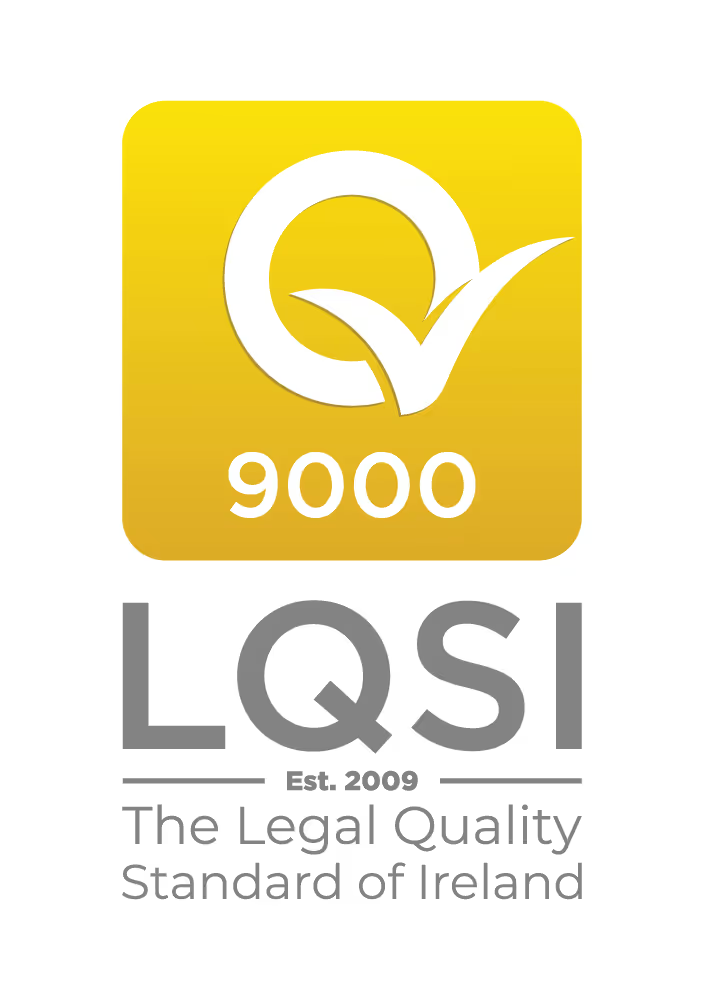As an artificial person, a company cannot represent itself in legal proceedings. By definition, an artificial person is a non-human legal entity that is recognised by law as a fictitious person. It is an entity created by law and given certain legal rights and duties of a human being.
There is an established principle that a company may only be represented before a Court by an officer of the Court, such as a solicitor or barrister, and not by a member or director of the company, or any other person. This principle is often referred to as the “Rule in Battle” (“The Rule”) which states that “…a limited company cannot be represented in court proceedings by its managing director or other officer or servant.”[1]
Despite the consequences of the Rule, which has been described by one judge as "far from ideal", the Supreme Court reaffirmed its principles in Allied Irish Bank plc v Aqua Fresh Fish Ltd[2] by stating that companies require legal representation in Court except in exceptional circumstances. The case concerned a managing director and principal shareholder, Mr Flynn, who sought to represent the company in security enforcement proceedings. In the High Court, an application by the director to represent the company was refused on the grounds that Mr Flynn did not hold a professional legal qualification. This was upheld by the Court of Appeal.
In the Supreme Court, Mr Flynn and Aqua Fresh Fish Limited submitted that the Rule conflicts with Article 40.3 of the Constitution, arguing that the State’s obligation to protect the rights of citizens includes “the property rights of the Company and its shareholders and their right of access to the Courts”.
The Court rejected this argument on the basis that the Rule, when complemented by the inherent jurisdiction and discretion of the Court to permit a company to be represented by a non-lawyer in "exceptional circumstances", is consistent with the Constitution. The Court also highlighted the fact that the Oireachtas did not deem it necessary to legislate for the right of a company to be represented by lay persons in the Companies Act 2014 (save in exceptional circumstances).
The Supreme Court in this case chose not to define “exceptional circumstances”, although it stated that neither the financial status of a company nor a lack of available funds to engage legal representation could be classed as exceptional.
The decision serves as a stark reminder to all officers of Irish companies that if no legal representation is retained, and an exceptional circumstance justifying the lack of same is non-existent, any proceedings brought against a company will not be defended and there is a highly probable risk of allowing judgment to be awarded against it.
Although the Rule appears to be relatively straightforward, certain practical consequences may arise. These include:
- Companies who cannot afford legal representation are effectively unable to defend their rights in Court. In such circumstances, the only viable option is for members of the company to personally deposit funds into the company, which carries its own risks; and
- The Courts are often tasked with complex litigation involving companies, in the absence of officers of the company who are best placed to explain the company's position.
Exceptions to the rule:
While the Irish Courts have confirmed that they possess an inherent jurisdiction to hear from lay advocates, on behalf of any person in "exceptional circumstances", no such application has been successful in relation to a company. However, there have been some indications by the Courts of possible exceptions to the Rule: These exceptions include:
- Single member private limited companies: In McDonald v McCaughey Developments Limited,[3] the High Court observed that a person who is the controlling individual of a small corporate entity may know as much about the company’s business and financial affairs as an individual person would know of his own.
- Where injustice may arise: In the case of Re Marble and Granite Tiles Ltd,[4] which involved a winding-up petition, Laffoy J allowed the director to have a say, albeit not in a representative capacity; and
- Criminal cases prosecuted on indictment: Section 868 of the Companies Act 2014 allows a company charged on indictment to appear "by a representative" who may answer any question and plead on the company's behalf.
However, as previously noted, such exceptions have yet to be successfully utilised in proceedings involving Irish companies.
Current position:
Following the Supreme Court decision in Aqua Fresh, the Rule remains in force in Ireland. Although the Courts contemplate exceptions to the Rule in exceptional circumstances, these circumstances have yet to be defined.
The Company Law Review Group in Ireland has recommended that a statutory restatement of the Rule should maintain most of its original features. It is therefore unlikely, save in the absence of a general overhaul of civil procedure rules, that we will see a relaxation of the Rule in the near future.
To recap, in general, the following apply
- The Rule states that a limited company cannot be represented in proceedings by one of its officers;
- Only officers of the court can represent a company in legal proceedings, subject to very limited exceptions
- Such exceptions have yet to be successfully utilised in Ireland; and
- It is unlikely that reform of this Rule will happen in the near future
[1] Battle v Irish Art Promotion Centre Ltd [1968] 1 I.R. 252 as affirmed more recently by the Supreme Court in Allied Irish Bank plc v Aqua Fresh Fish Ltd [2018] IESC 49
[2] Allied Irish Bank plc v Aqua Fresh Fish Ltd [2018] IESC 49
[3] [2014] IEHC 455
[4] [2009] IEHC 455







